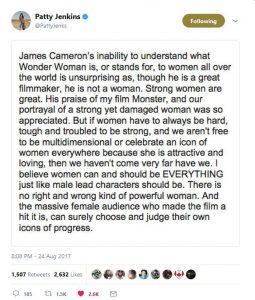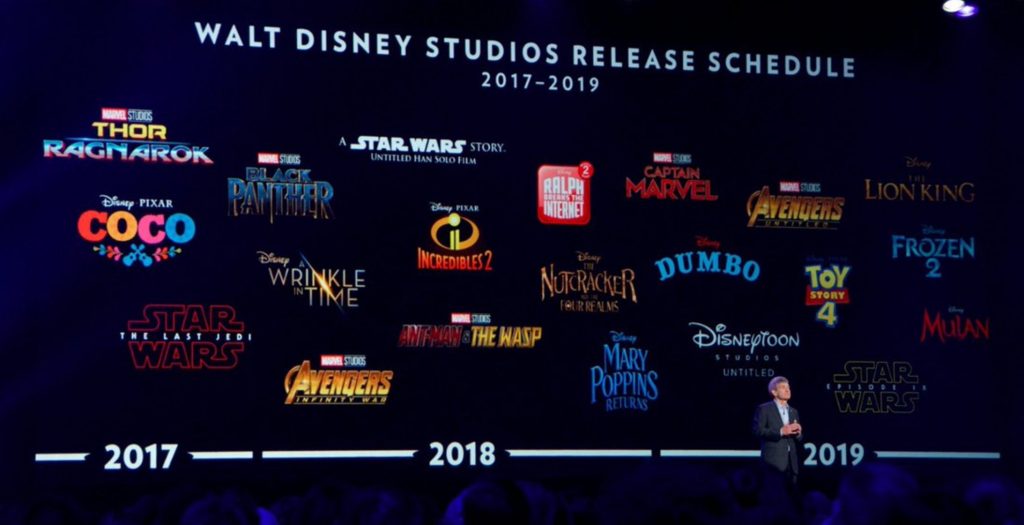LESSON #1: THERE’S A DIFFERENCE BETWEEN “FAVORITE” AND “GREATEST”— I’ve used this very lesson’s line quite often in the Feelin’ Film discussion group over the year. As a credentialed film critic who is still a starving fan of cinema, I cannot help but wear two hats and grade with two scales, and I’m completely at peace with that. However, thanks to sites like Letterboxd, we rank things to death and I, for one, get hung up on the labeling because there is a stark difference between “favorite” and “greatest.” “Favorite” is personal taste while “greatest” is more objective and reflective in measurement. It’s beautiful when they are the same film, but there are many cases when that doesn’t happen. The most recent topic that reminded me of the necessity for separate distinctions was the recent BBC poll ranking the 100 greatest comedies of all time. Comedy is the most subjective of all film genres, where the divide between “favorite” and “greatest” is both distant and touchy from one person to the next. Comedy also has the proclivity to not age well. Combine those reactions together and the dissection comments of “what about ____,” “why isn’t ____ higher,” and “I can’t believe ___ isn’t on there ” reminded me that comedy is personal and even the trolls have room for a say. Then, I looked at the years and it led me to the next lesson.
LESSON #2: MILLENNIALS DON’T REALLY CARE ABOUT CLASSIC FILMS— For the multitude of younger audiences circulating the web today, the BBC’s top 10 was entirely comprised of films older than 1993’s Groundhog Day, topped by 1959’s Some Like it Hot (a completely deserving top film IMO). I wonder how many of the butthurt Millennials who were dropping those comments from Lesson #1 have even seen a Charlie Chaplin or Buster Keaton film. This lesson title is lifted from a recent New York Post article that hit the truth of wonderment with a ton of bricks. The piece reported polling data from FYE.com of 1,000 Millennials and 1,000 Americans over 50 on seeing top IMDb-rated films. The results were eye-opening. I get that differences in quality and tone from classic films to modern films and how audiences and tastes have changed. Still, I will stand up as a guy calling for young people to respect history and educate themselves before they rant. Learn the roots that inspired the films we’re watching today. Go discover the endless buried treasure that comprises lists like the BBC’s Top 100 Comedies and the IMDb Top 250. Even if they don’t like what they find, they’ll at least be an educated voice instead of an ignorant one.
LESSON #3: LET’S VISIT JESSE AND CELINE EVERY NINE YEARS UNTIL THEY DIE— If note-worthy director Michael Apted can revisit the same group of British citizens every seven years in his beloved Up documentary series that started at 7 Up in 1964 and turned 56 Up in 2012, then let’s have a narrative feature do the same. Word fluttered recently that there is hope for a fourth Before film from director Richard Linklater and stars/co-writers Ethan Hawke and Julie Delpy. To whatever studio gets that pitch, move heaven and earth to make it happen in time for 2022. Linklater, Hawke, and Delpy have built a trilogy of perfection since 1995. How beautiful would it be to follow the star-crossed couple of Jesse and Celine from the twentysomethings to their silvery senior years? Gosh, that’s a good dream!
LESSON #4: L.A. CONFIDENTIAL IS CURTIS HANSON’S MASTERPIECE— During the recent Noir City Festival in Chicago, the famed Music Box Theatre in Chicago hosted a 20th-anniversary screening of Curtis Hanson’s L.A. Confidential, complete with author James Ellroy in the house for a rousing introduction and post-film talk back. Here fellow Chicago critic Jeff York and I talk about the experience on the Page 2 Screen podcast on the International Screenwriters’ Association Network. Twenty years ago, when I was just getting into movies as a high school grad approaching his freshman year of undergrad, I was lucky enough to discover L.A. Confidential on the big screen and it was a gateway drug to learning about the noir genre and smart procedural films after a decade-long buffet of 90s action films built as trashy and excessive glamour projects (go look at the 90s filmographies of Steven Seagal, Jean-Claude Van Damme, Sylvester Stallone, Bruce Willis, and Arnold Schwarzenegger). The film should have beat Titanic for the Best Picture Oscar that year and it still stands as a watershed today. Curtis Hanson died a year ago this month, leaving behind a resume of The Hand that Rocks the Cradle, Wonder Boys, White Dog, The River Wild, and 8 Mile. L.A. Confidential is his unquestioned masterpiece and one of my Top 5 all-time films. If you’ve never seen it, treat yourself.
LESSON #5: THE WORLD IGNORED THE RETURN OF STEVEN SODERBERGH AND IT’S A DAMN SHAME— Speaking of masterful directors, Steven Soderbergh’s Logan Lucky deserved better at the August box office. The whole month has been a hot mess and dumping grounds for trash left and right for the last three weeks, but Soderbergh’s heist film is a gem. The guy came out of retirement and delivered a crowd-pleasing winner. I’m surprised in the summer of Baby Driver that Logan Lucky couldn’t find a similar niche audience. Here’s to hoping it finds a sweet spot on the next level of VOD, Netflix, and home viewing. Consider that film a current treat to wash down the Curtis Hanson one with a smile.
 DON SHANAHAN is a Chicago-based film critic writing on his website Every Movie Has a Lesson. He is also one of the founders and the current directors of the Chicago Independent Film Critics Circle. As an elementary educator by day, Don writes his movie reviews with life lessons in mind, from the serious to the farcical. As a contributor here on Feelin’ Film, he’s going to expand those lessons to current movie news and trends. Find “Every Movie Has a Lesson” on Facebook, Twitter, Medium, and Creators Media.
DON SHANAHAN is a Chicago-based film critic writing on his website Every Movie Has a Lesson. He is also one of the founders and the current directors of the Chicago Independent Film Critics Circle. As an elementary educator by day, Don writes his movie reviews with life lessons in mind, from the serious to the farcical. As a contributor here on Feelin’ Film, he’s going to expand those lessons to current movie news and trends. Find “Every Movie Has a Lesson” on Facebook, Twitter, Medium, and Creators Media.






